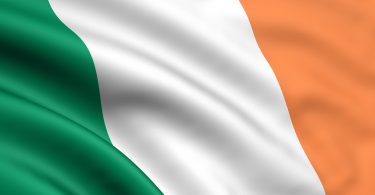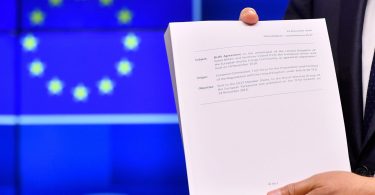By Jeremy Brier, barrister and former Adjunct Professor of EU Law at Pepperdine University.
When I used to lecture American graduates in European Union Law, there were many occasions when I reduced them to gasps of disbelief. Like the time I told them they couldn’t text each other during class. Total outrage. Once, I even had the temerity to ask a boy kindly to refrain from eating a Chinese takeaway (I don’t mind surreptitious snacking but full mid-class meals with chopsticks and napkins are really pushing it).
But there was always a particular moment, midway through our first lecture on the EU, when my American students would look particularly dumbstruck. It was when they learnt that the common market, entered into in a spirit of amity to heal war-torn Europe, had by the reasoning of its appointed Judges, determined that EU laws must reign supreme over those of the EU’s member states.
Perhaps this doctrine of supremacy was always there in the text of the Treaty of Rome, which established the European Economic Community on 1 January 1958.
Article 177 provided a mechanism whereby the European Court of Justice could give rulings upon requests from national courts for guidance, to ensure a uniformity of application of Community law throughout the EU.
In 1963, in a case called van Gend en Loos, the ECJ confirmed in answer to a reference from the Dutch Courts that individuals had the power to enforce directly certain European rights in their national courts: the doctrine of “direct effect”. The question inevitably arose thereafter (this time from an Italian court) as to what happens if there is a conflict between such a “directly effective” Community right and those provisions set out in national laws?
Costa, who held shares in a private energy company that was about to be nationalised, refused to pay his (very small) energy bill. Sued before an Italian Court by the new state energy company, Costa contended that the nationalisation infringed European laws relating to the state distorting the market. The Italian Government argued that this was a national issue and Costa had no standing to bring the case. It argued that the nationalisation post-dated the Treaty of Rome and Italian principles allowed subsequent laws to modify preceding ones.
Addressing the question of whether this was a national issue or an EU one, the ECJ held as follows: “the EEC Treaty has created its own legal system which, on the entry into force of the Treaty, became an integral part of the legal systems of the member states and which their courts are bound to apply”. The Community was one of “unlimited duration … stemming from a limitation of sovereignty or transfer of powers from the State to the Community” by which Member States have “limited their sovereign rights”. This made it impossible for States to “accord precedence to a unilateral and subsequent measure over a legal system accepted by them”.
It is arguable that the European Court’s logic was sound here. Without compatible Community law across the European Union, a truly uniform market is impossible. The problem is that British voters electing to join the “Common Market” in 1975 did not comprehend this and nor did the politicians of the day. Not until the 1990s did the penny drop as the EU grew in nature and number. Then, in a case called “Factortame II” the UK’s senior court (the House of Lords) was told by the ECJ that the Merchant Shipping Act 1988, passed by Parliament, was incompatible with Community law and had to be disapplied. Westminster wasn’t top dog anymore.
One reason my students always found this shocking was because they were American. Not, you understand, because I consider Americans to be particularly shockable. But there is something particularly egregious for citizens of a country who place such a pride in their sovereignty and Constitution to contemplate it being trumped (no contemporary pun intended) from an outside body. It was, one student remarked, the equivalent of the US Supreme Court seeking guidance from NAFTA, to disapply an Act of Congress. He wasn’t wrong. Save that NAFTA remains limited in reach, whereas the EU now regulates vast aspects of European life.
In the present British debate, it is informative to recall the shock that greets an outsiders’ first understanding of how the EU grew. Its history is of an unstoppable escalation, either emanating from its own internal logic and powers or by a concerted but quiet power grab.
Open borders with Turkey within a decade is the inevitable apotheosis of a century in which we diluted our laws, pooled our sovereignty and vowed to intermingle our land and laws with our neighbours and beyond.
Most Remainers don’t deny this. You will rarely hear them give a principled justification for the growth of the EU. They just say it is far, far too risky and complex to leave. And they are right to say that forging an exit plan after such a long relationship will be untidy, contradictory and difficult. But this is not a reason not to try.
Lawyers, who are normally varied in their views, almost always answer one question the same way. When asked “can you find an answer to this complex question?” they say “yes”. Saying “sorry it’s just too hard” just isn’t in counsels’ DNA. So when it comes to the tricky issue of the implications for our laws of leaving the EU, we can work out answers, just as we do with our hardest cases.
Just as the European Courts grew their own powers, so an established body of national court rulings will find ways of wresting them back. Our lawmakers and Judges will create rules for untangling European legislation; for distinguishing conflicting authorities, and for ascribing value to old EU case law (as we do with judgments of the Commonwealth). It won’t be without difficult dilemmas, even unfairness when laws change.
But surely restoring the independence of our legal system and the direct relationship between the voter and the lawmaker – seemingly vanished but suddenly a real possibility again – is a prize worth fighting for.
This article was first published on “Heatstreet”.








